Over Spring Break I finished reading Educated by Tara Westover. The memoir is about a young woman’s journey from her religious family to higher education. The book has several themes. There are areas that focus on identity, family, faith, education, etc. The book really resonated with me for several reasons, but the area that really resonated with me the most was the power of education in the author’s life and how it helped her to evaluate who she was and discover the woman that she is today. Her ability to go through this process is really due to her education inside and outside of the classroom.
A huge part of my identity revolves around education. Just like the author, I was able to discover who I am and who I wanted to be in life. My parents encouraged all of their children to get an education, they believed that they were the keys to success. I thrust myself into my studies and quite a few of the lessons I learned came from inside and outside of the classroom. As educators, we must never forget the impact the classroom has on not only our students and their profession but also who they are as an individual. The author learned a lot about herself inside and outside of school. Here are some things I learned about myself from my educational experiences:
I didn’t want to be a lawyer when I grew up. For the longest time I wanted to be a lawyer. We did a mock trial in high school and I realized, THIS IS NOT FOR ME. I played the lawyer and I choked. My heart was not in it. My heart is in teaching.
Hard work and belief go a long way. I believe I’ve mentioned this before, but I was not the best speech and debate competitor in college. I lacked confidence and some key skills. Over time I decided to up my work ethic and to really believe that I could do it. The end result, I have some championships under my belt and I’m proud of that accomplishment.
I’m a nerd and I’m proud of it. I love school, reading, studying, and watching and engaging in nerdy things like Game of Thrones. I have reaped many benefits and rewards from my nerdiness. I even include it in my lessons in the classroom.
Prayer and Coffee. Ever since high school, people have mentioned to me how they can’t believe how I get through the crazy business of life. I tell them that I get through it with a whole lot of prayer and a whole lot of coffee. Both came from my family. I grew up in a religious home and everything revolved around prayer. The coffee came from my mom, she loves it, I picked up the habit my senior year of high school and I have not let it go. Prayer and coffee are my lifeline. =>)
Life will hand you some serious lemons, make the best batch of lemonade you can, and drink a giant big gulp cup of it in front of life. I’ve drunk several big gulp cups of lemonade in front of life. I’ve done my best to make the best lemonade from some sour lemons in life. I’ve had uncertainty and struggles with school, work, and health, but I’m thankful that lemonade has come from that. I’m grateful.
The lessons learned are only a small portion of the things that have shaped me. All of the lessons learned, just like the author in Educated, have contributed to who I am today, and I wouldn’t change it for anything.

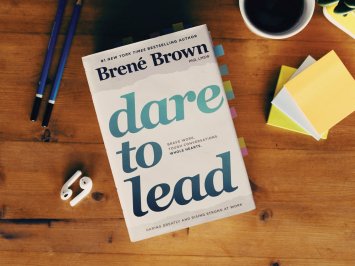 I am proud. I am proud of the leadership of GCC faculty and staff. Over the past few months I have seen faculty and staff courageously offer their thoughts and opinions of how to improve our district, campus, and our classrooms. The work of GCC faculty and staff have resulted in committees being created, campus calls to action, panel discussions, task force, etc. I wish I had the time and space to call everyone’s attention to several things that represent the sheer amount of tenacity, passion, and courage on our campus. I only have the time and the space to focus on one thing, so I will focus on the Reimagine Project.
I am proud. I am proud of the leadership of GCC faculty and staff. Over the past few months I have seen faculty and staff courageously offer their thoughts and opinions of how to improve our district, campus, and our classrooms. The work of GCC faculty and staff have resulted in committees being created, campus calls to action, panel discussions, task force, etc. I wish I had the time and space to call everyone’s attention to several things that represent the sheer amount of tenacity, passion, and courage on our campus. I only have the time and the space to focus on one thing, so I will focus on the Reimagine Project.
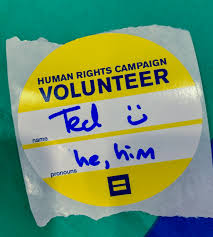


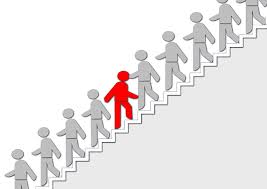
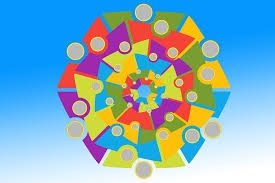
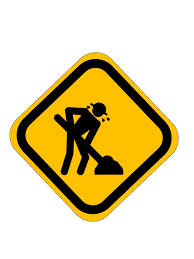
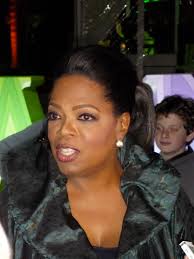
 Many people know that I love Oprah! I am of course subscribed to her podcast Oprah’s Super Soul Conversations. Yesterday I listened to the episode: Iyanla Vanzant: You Matter. Iyanla Vanzant is a woman who helps people overcome some major issues on a show on OWN called Fix My Life. When I saw the title of the podcast I had to listen and I was not disappointed. It perfectly aligns with what I have been talking about for the past few weeks. If you get a moment to listen, check it out.
Many people know that I love Oprah! I am of course subscribed to her podcast Oprah’s Super Soul Conversations. Yesterday I listened to the episode: Iyanla Vanzant: You Matter. Iyanla Vanzant is a woman who helps people overcome some major issues on a show on OWN called Fix My Life. When I saw the title of the podcast I had to listen and I was not disappointed. It perfectly aligns with what I have been talking about for the past few weeks. If you get a moment to listen, check it out.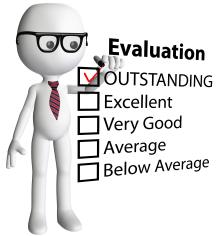 I like student evaluations. Many dread them because of the anxiety of what students might say on a form, but I look forward to them. I encourage my students to complete them since they let me know how I’m doing. I let them know that their thoughts matter. I read every positive and negative comment on each evaluation form. I let them know that pay close attention to what they say because I am always striving to be better than I was the day before. To me, evaluations are all about helping me to improve.
I like student evaluations. Many dread them because of the anxiety of what students might say on a form, but I look forward to them. I encourage my students to complete them since they let me know how I’m doing. I let them know that their thoughts matter. I read every positive and negative comment on each evaluation form. I let them know that pay close attention to what they say because I am always striving to be better than I was the day before. To me, evaluations are all about helping me to improve.